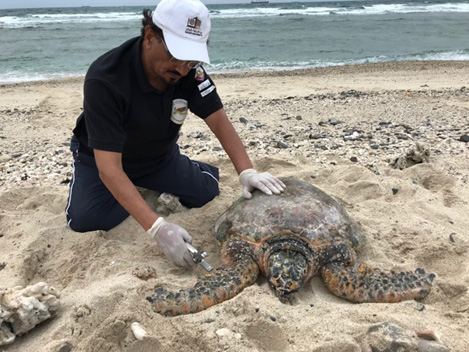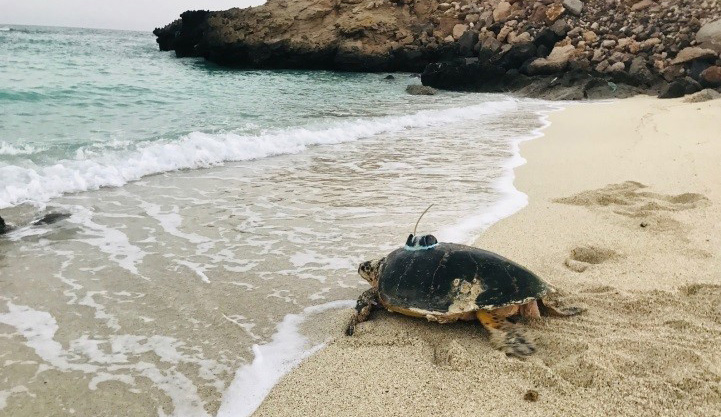Sea turtles are a group of reptiles that have adapted to live in the sea and are one of the most ancient creatures on the planet. Scientists recognise seven living species of sea turtles that live in our oceans today, including the critically endangered Hawksbill Turtle.
The Environmental Science Center (ESC) at Qatar University currently implements the ‘Qatar Turtle Project’ to help protect Qatar’s Hawksbill Turtles, thanks to the funding provided by Qatar Petroleum.
The project is a top-priority project led by ESC Director Dr Hamad Al Saad Al Kuwari, and manned by a specialist team and technicians. Since 2002, Qatar Petroleum and Qatar University have been studying Hawksbill Turtles in Qatari coasts and working to restore the turtle populations and their habitat.

The conservation of sea turtles is an essential part of the ecological balance. Unfortunately, human interventions have significantly altered the environmental balance, which has led to many negative impacts on terrestrial and coastal habitats due to increasing population, greenhouse gas emissions and general environmental degradation.
The study of the hawksbill turtles this year includes the study of nesting beaches at Fuwairit, Al Mafyar, Al Ghariyah, Al Maroona and Al Huwailah. These beaches are monitored by a scientific team from the ESC in cooperation with a team of observers from the Ministry of Municipality and Environment. The study also included four Qatari islands including the far off islands of Halul and Sharaouh and the nearby Umm Tais and Ras Rakkan. The island study is also supervised by a specialist team led by ESC Field Director Dr Jassim Abdulla Al Khayat.
This year, according to ESC Researcher Shafeeq Hamza, the project included the deployment of satellite transmitters on a number of hawksbill turtles in Halul Island to track their movements and behaviour in the Gulf. Hamza has been working with the Qatar Turtle project since 2009.
The nesting beaches in Halul Island are well fenced and guarded by Halul Offshore management. With continuing cooperation and joint efforts from various institutions, this critically endangered turtle will thrive on the shores of Qatar.
A copy of the Qatar Turtle Management Project may be downloaded here.





